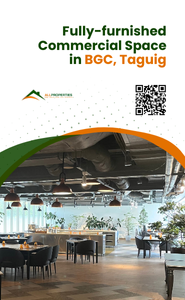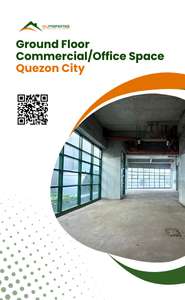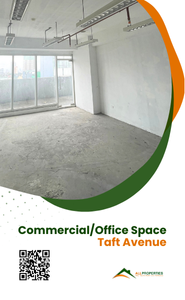Flexibility is Key: Why Renting an Office Space is Perfect for Growing Businesses

Growth in business is rarely linear. One month may bring rapid expansion, while the next demands strategic consolidation. This unpredictable rhythm is both exhilarating and challenging. Navigating such an environment requires decisions that are as nimble as the business itself.
A recurring dilemma confronts many entrepreneurs and executives: should a business invest in a permanent office space, or opt for a more transient rental arrangement? The former promises ownership, while the latter offers adaptability.
For organizations still charting their path, renting office space provides unmatched flexibility. It enables companies to adjust their physical footprint in tandem with operational needs—without the burdens of permanence. In today’s fluctuating economic landscape, that agility is not merely advantageous—it is essential.
Agility in a Changing Market: The Core Advantage of Renting Commercial real estate
Scalability: Aligning Space with Team Dynamics
Business trajectories are seldom static. Teams grow during peak project seasons and may contract when strategies pivot. Renting makes it feasible to scale up or down without logistical nightmares or financial losses.
Owning a space that once felt expansive can quickly become a constraint when it’s overrun by new hires. Conversely, maintaining a large office during lean periods wastes valuable resources. Renting alleviates this pressure by offering modular solutions that match workforce needs in real time.
Consider a startup that experiences a sudden hiring surge, it can simply move into a larger unit or add workstations within a flexible workspace. On the flip side, if remote work initiatives reduce the need for desks, downsizing is a hassle-free transition.
Location Flexibility: Go Where the Opportunity Is
Geographic agility is a critical asset. Renting enables businesses to set up shop and physical office space in emerging hubs or relocate closer to key clients and talent pools.
A company operating in Metro Manila, for instance, might find strategic value in moving to a different area to better serve a high-value client or tap into a new labor market. Rather than be anchored by its own space, a business can reposition itself with minimal friction, an edge that cannot be overstated.
Moreover, rental arrangements allow the business to test different locales, assess their viability, and make informed decisions for its business owner without long-term entanglements.

Adaptability to Business Model Shifts
The only constant in modern commerce is change. Whether shifting from a product-focused model to a service-oriented one or transitioning from on-site operations to a hybrid work model, physical space must evolve accordingly.
A previously vital warehouse might become redundant. A traditional office layout may no longer serve a team that collaborates virtually without a coworking space. Renting allows a business to make these pivots swiftly, avoiding the cost and time associated with altering owned properties or selling off misaligned real estate.
Financial Freedom and Reduced Upfront Costs in the Commercial real estate market
Lower Initial Investment and Flexible Terms: Allocate Capital Strategically
Ownership requires a substantial initial outlay, down payments, legal fees, and sometimes extensive renovations. These expenditures divert capital from what truly matters: product refinement, brand awareness, and human resources.
By choosing to rent, businesses can allocate funds toward initiatives that directly drive growth and profitability, instead of sinking capital into bricks and mortar.
Predictable Expenses: Streamlined Budgeting and Financial Clarity
Rental agreements usually come with transparent pricing structures. This predictability is invaluable for young businesses navigating volatile income streams.
There are no surprise repair bills or erratic maintenance costs. Fixed monthly payments enable clearer forecasting and reduce financial strain, allowing leadership to focus on innovation rather than infrastructure.
Reduced Long-Term Commitment: Maintain Strategic Agility
Real estate is a notoriously illiquid asset. Selling a property in a sluggish market can be time-consuming and financially draining.
Renting, by contrast, allows businesses to exit or reconfigure with relative ease. If market conditions deteriorate or the company’s direction takes an unexpected turn, a leased office doesn’t become a liability. It becomes a stepping stone to the next chapter.
Access to Modern Amenities and Professional Environments
Ready-to-Use Infrastructure: Expedite Operational Rollout
Rented office spaces often come fully equipped with modern and nearby amenities. High-speed internet, modern furniture, and dedicated meeting rooms are typically part of the package.
This plug-and-play approach minimizes downtime and simplifies onboarding for new teams. There’s no need to coordinate contractors, purchase equipment, or handle utilities, business operations can commence on day one.
Professional Image: Elevate Perception of Work Environment, Internally and Externally
First impressions matter. Clients, partners, and recruits form opinions based on your physical environment.
Rented offices, especially in premium business centers, convey professionalism and stability. Even without ownership, businesses can project an image of sophistication and operational readiness, boosting both confidence and credibility.
Networking Opportunities: Cultivate a Thriving Ecosystem
Co-working spaces in particular offer more than just square footage. They foster a sense of community.
Professionals from different industries intersect, creating fertile ground for idea exchange, strategic partnerships, and even new revenue streams. These organic connections can be the catalyst for collaborations that propel a business forward in unexpected ways.
Empowering Growth Through Strategic Renting
For businesses in growth mode, renting a new office space is not a compromise, it is a strategic maneuver. It provides agility in a turbulent market, liberates capital for mission-critical investments, and grants access to professional-grade infrastructure and networks.
Contrary to the misconception that renting equates to throwing money away, it should be seen as a tactical expenditure—one that secures flexibility, mitigates risk, and enables responsive decision-making.
As companies consider their next move, the question should not simply be, “Can we afford to rent?” but rather, “Can we afford to be inflexible?” In a business world defined by change, flexibility is not just beneficial, it’s paramount. Renting offers it in spades.




